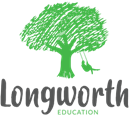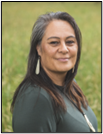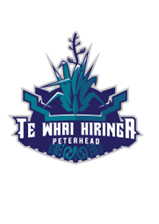You are here
Home › TLRI research › Research in progress › School sector › Ko te tākaro te kauwaka e pakari ake ai te tangata framework for play in a primary school. Cultural pluralism for play-based pedagogy: Developing and implementing an indigenised framework for play in a primary schoolKo te tākaro te kauwaka e pakari ake ai te tangata framework for play in a primary school. Cultural pluralism for play-based pedagogy: Developing and implementing an indigenised framework for play in a primary school
Project description
This project is focused on the intersection between culturally sustaining practice and the use of play as a powerful pedagogical approach for early learning. Recognising the potential bias or systemic racism when play is only considered from a western perspective, we aim to explore decolonising and indigenising play practices within the school setting. The project builds on the groundwork undertaken by the leaders and kaiako at Te Whai Hiringa Peterhead School in indigenising their local curriculum reflective of mana whenua goals for their ākonga.
Aims
This project aims to explore the ways in which kaiako can adopt culturally sustaining play practices in their classrooms and intentionally promote, through play, an indigenised local curriculum based on values and dispositions that are culturally sustaining.
We will be guided by the following research questions:
- What are ākonga, whānau, kaiako and iwi perspectives and experiences of play?
- How can play practices be used in line with our school’s values of manaakitanga, whanaungatanga and māramatanga to support culturally sustaining pedagogy.
- What professional learning and development supports do teachers need to implement culturally sustaining play pedagogies?
- How do culturally sustaining play pedagogies impact ākonga sense of cultural connection and belonging, language and identity as mana whenua?
Why is this research important?
This project acknowledges the importance of the continued revitalisation and advancement of te reo Māori me ōna tikanga, and the advancement of educational aspirations, achievements and successes for the ākonga and whānau of Ngāti Kahungunu. While the project work is localised in context, it is our aim to contribute to the growing body of research on the ways in which kaiako can, using play pedagogy, refine their practice to reflect the cultural diversity within their classrooms, relative to mana whenua values and priorities within their local region.
What we plan to do
The project will be conducted using design-based research. Project-developed survey, observation and interview data collection methods will be used to inform the selection and creation of the project framework. This framework will be co-constructed through a cycle of wānanga, implementation of draft framework, and collaborative review and evaluation by the teachers, school leaders, project advisors, and project co-lead investigators. The project team will draw upon two bodies of knowledge, namely mātauranga Māori and western education theories to co-construct and inform the research design process as it moves across seven poutohu/phases. Following wānanga, the framework will follow a cyclical implementation trial and review process reflective of design-based research methodology. A set of complementary reflection and observation tools for teacher practice and ākonga learning will be developed alongside the framework. Teachers will then be supported to implement and strengthen the identified practices using an adaptive form of practice-based coaching professional development.
Contact details
 |
Dr. Sarah Aiono, Longworth Education 64 Longview Road, Poraiti, Napier sarah@longwortheducation.co.nz 021 552 846 |
 |
 |
Tineka Tuala-Fata Te Whai Hiringa Peterhead School 10 Peterhead Ave, Flaxmere, Hastings, 4120 tumuaki@peterhead.school.nz 021 442 369 |
 |
TLRI research
Recently published reports
Pepe meamea in the spirit of the collective: Embedding Samoan indigenous philosophy in ECE for Samoan children under two
Jacoba MatapoOn2Science - Multiple affordances for learning through participation in online citizen science
Dr Cathal Doyle and Dr Cathy BunttingLearning From Each Other: Enhancing Pacific Education through People, Concept and Culture-focused Inquiry
Dr Cherie Chu-Fuluifaga and Dr Martyn ReynoldsMore projects like this
- Ngā pūrākau o Te Kura o Tuahiwi. A Kaupapa Māori Case study: a mixed methods approach
- Co-constructing a culturally and linguistically sustaining, Te Tiriti-based Ako framework for socio-emotional wellbeing in education: A collaborative project among teachers, whānau, hapū and iwi to enable a holistic approach to education
- Renewing participatory democracy: Walking with young children to story and read the land

